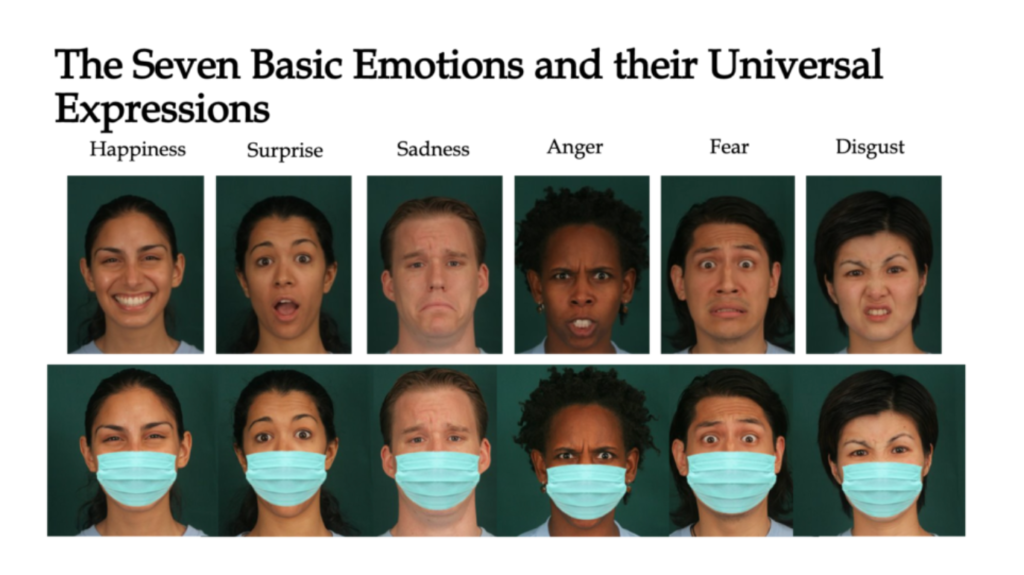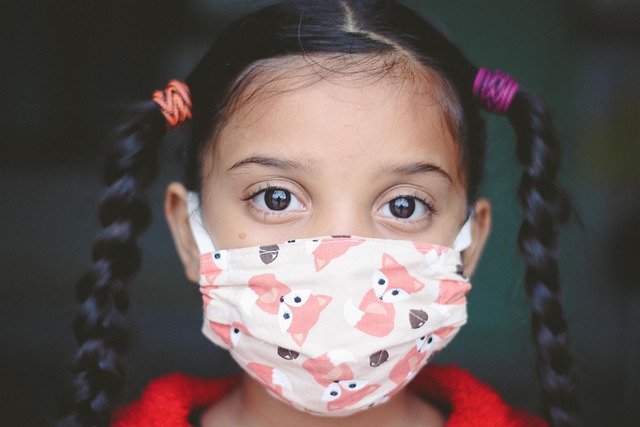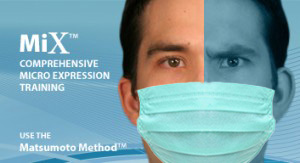 For many, face masks have become the symbol of the global fight against COVID-19. But while face masks’ medical benefits seem to be clear, little is known about their psychological consequences, particularly on emotion recognition.
For many, face masks have become the symbol of the global fight against COVID-19. But while face masks’ medical benefits seem to be clear, little is known about their psychological consequences, particularly on emotion recognition.
Drawing on theories of the social functions of emotions and rapid trait impressions, researchers from University of Groningen in The Netherlands tested hypotheses on face masks’ effects on emotion-recognition accuracy and social judgments (perceived trustworthiness, likability, and closeness).
The Study and Results

The Dutch study consisted of 191 German adults. Participants were (without their awareness) randomly assigned toone of two conditions: In the control condition, participants saw original face stimuli; in the mask condition, target faces were covered by a prototypical face mask.
After giving active informed consent and agreeing to not download the study materials, participants provided basic demographic information. Subsequently, participants completed an emotion-recognition task and provided social judgments. They then completed measures of their mask-as-threat and mask-as-opportunity associations. The researchers also assessed participants’ preoccupation with COVID-19 and their exposure to face masks.
Their research revealed that face masks diminish people’s ability to accurately categorize an emotion expression and make target persons appear less close.
What About Masked Kids?
 The study out of The Netherlands is not the only research that has looked at this topic.
The study out of The Netherlands is not the only research that has looked at this topic.
In a report entitled “Masking Emotions: Face Masks Impair How We Read Emotions” researchers demonstrated that face masks influence the human ability to infer emotions by observing facial configurations.
Specifically, a facemask obstructing a face limits the ability of people of all ages to infer emotions expressed by facial features, but the difficulties associated with the mask’s use are significantly pronounced in children aged between 3 and 5 years old.
The researchers’ findings are of essential importance, as they suggest that we live in a time that may potentially affect the development of social and emotion reasoning, and young children’s future social abilities should be monitored to assess the true impact of the use of masks.
They also stress designing devices for personal protection that allows visibility of the lower part of the face may be crucial in all environments important for developing social and interaction skills in children, such as in education or rehabilitation, especially for those suffering from sensory or cognitive deficits.
You Can Still Gain Insights
While it is true that masks block faces, all is not lost. You can still gain insights into people’s emotional states. Even if someone is wearing a mask, don’t abandon the thought that we can pick up cues in the face.
For those of you who have had our training on reading facial expressions of emotion, there’s a lot of things that go on in the upper half of the face. Clearly you can’t see the mouth region, but you can still gather things in the upper face region.
What expressions can you see?
- The wrinkling of the disgust will give you an appearance change between the eyes at the top of the nose.
- The lifting of the upper eyelids in fear or surprise, but especially fear, is also visible.
- You can see the brow and eye movements of surprise
- You can also see inner corners of the brows going up in sadness or distress.
Learn How to Read Emotions on Masked Faces

Last year we launched our Masked MiX training course that will help you unmask facial expressions of emotion.
This brand new, one-of-a-kind course helps you to regain those insights about people’s emotional states.
Masked MiX will help you read facial expressions of emotion and microexpressions on masked faces, know which facial emotions are visible and which are not, and label emotions quickly and accurately on masked faces.